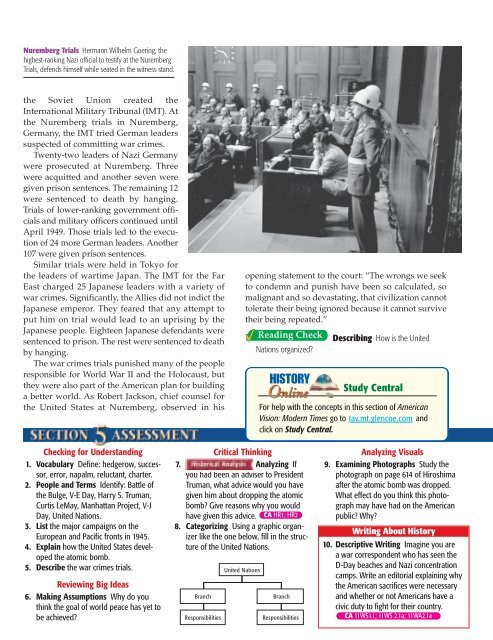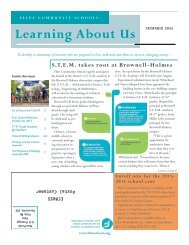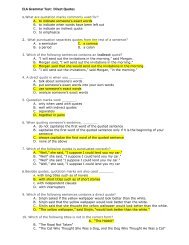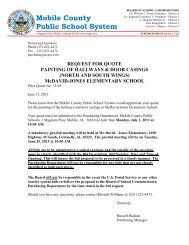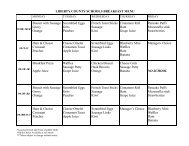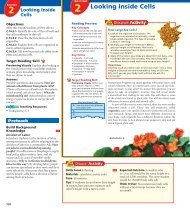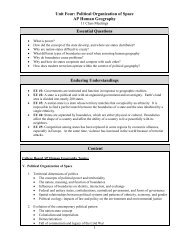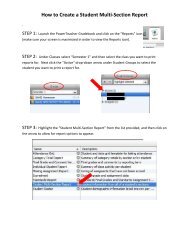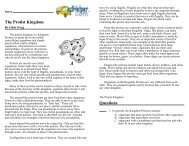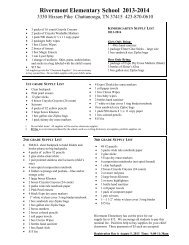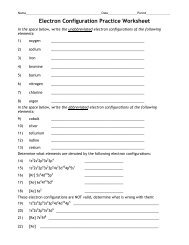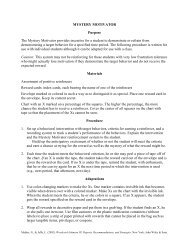Chapter 12: America and World War II, 1941-1945 - Georgia ...
Chapter 12: America and World War II, 1941-1945 - Georgia ...
Chapter 12: America and World War II, 1941-1945 - Georgia ...
Create successful ePaper yourself
Turn your PDF publications into a flip-book with our unique Google optimized e-Paper software.
Nuremberg Trials Hermann Wilhelm Goering, the<br />
highest-ranking Nazi official to testify at the Nuremberg<br />
Trials, defends himself while seated in the witness st<strong>and</strong>.<br />
the Soviet Union created the<br />
International Military Tribunal (IMT). At<br />
the Nuremberg trials in Nuremberg,<br />
Germany, the IMT tried German leaders<br />
suspected of committing war crimes.<br />
Twenty-two leaders of Nazi Germany<br />
were prosecuted at Nuremberg. Three<br />
were acquitted <strong>and</strong> another seven were<br />
given prison sentences. The remaining <strong>12</strong><br />
were sentenced to death by hanging.<br />
Trials of lower-ranking government officials<br />
<strong>and</strong> military officers continued until<br />
April 1949. Those trials led to the execution<br />
of 24 more German leaders. Another<br />
107 were given prison sentences.<br />
Similar trials were held in Tokyo for<br />
the leaders of wartime Japan. The IMT for the Far<br />
East charged 25 Japanese leaders with a variety of<br />
war crimes. Significantly, the Allies did not indict the<br />
Japanese emperor. They feared that any attempt to<br />
put him on trial would lead to an uprising by the<br />
Japanese people. Eighteen Japanese defendants were<br />
sentenced to prison. The rest were sentenced to death<br />
by hanging.<br />
The war crimes trials punished many of the people<br />
responsible for <strong>World</strong> <strong>War</strong> <strong>II</strong> <strong>and</strong> the Holocaust, but<br />
they were also part of the <strong>America</strong>n plan for building<br />
a better world. As Robert Jackson, chief counsel for<br />
the United States at Nuremberg, observed in his<br />
opening statement to the court: “The wrongs we seek<br />
to condemn <strong>and</strong> punish have been so calculated, so<br />
malignant <strong>and</strong> so devastating, that civilization cannot<br />
tolerate their being ignored because it cannot survive<br />
their being repeated.”<br />
Reading Check Describing How is the United<br />
Nations organized?<br />
HISTORY<br />
Study Central<br />
For help with the concepts in this section of <strong>America</strong>n<br />
Vision: Modern Times go to tav.mt.glencoe.com <strong>and</strong><br />
click on Study Central.<br />
Checking for Underst<strong>and</strong>ing<br />
1. Vocabulary Define: hedgerow, successor,<br />
error, napalm, reluctant, charter.<br />
2. People <strong>and</strong> Terms Identify: Battle of<br />
the Bulge, V-E Day, Harry S. Truman,<br />
Curtis LeMay, Manhattan Project, V-J<br />
Day, United Nations.<br />
3. List the major campaigns on the<br />
European <strong>and</strong> Pacific fronts in <strong>1945</strong>.<br />
4. Explain how the United States developed<br />
the atomic bomb.<br />
5. Describe the war crimes trials.<br />
Reviewing Big Ideas<br />
6. Making Assumptions Why do you<br />
think the goal of world peace has yet to<br />
be achieved?<br />
Critical Thinking<br />
7. Analyzing If<br />
you had been an adviser to President<br />
Truman, what advice would you have<br />
given him about dropping the atomic<br />
bomb? Give reasons why you would<br />
have given this advice. CA HR1; HR2<br />
8. Categorizing Using a graphic organizer<br />
like the one below, fill in the structure<br />
of the United Nations.<br />
Branch<br />
Responsibilities<br />
United Nations<br />
Branch<br />
Responsibilities<br />
Analyzing Visuals<br />
9. Examining Photographs Study the<br />
photograph on page 614 of Hiroshima<br />
after the atomic bomb was dropped.<br />
What effect do you think this photograph<br />
may have had on the <strong>America</strong>n<br />
public? Why?<br />
Writing About History<br />
10. Descriptive Writing Imagine you are<br />
a war correspondent who has seen the<br />
D-Day beaches <strong>and</strong> Nazi concentration<br />
camps. Write an editorial explaining why<br />
the <strong>America</strong>n sacrifices were necessary<br />
<strong>and</strong> whether or not <strong>America</strong>ns have a<br />
civic duty to fight for their country.<br />
CA 11WS1.1; 11WS 2.1a; 11WA2.1e<br />
CHAPTER <strong>12</strong> <strong>America</strong> <strong>and</strong> <strong>World</strong> <strong>War</strong> <strong>II</strong> 617<br />
CORBIS


